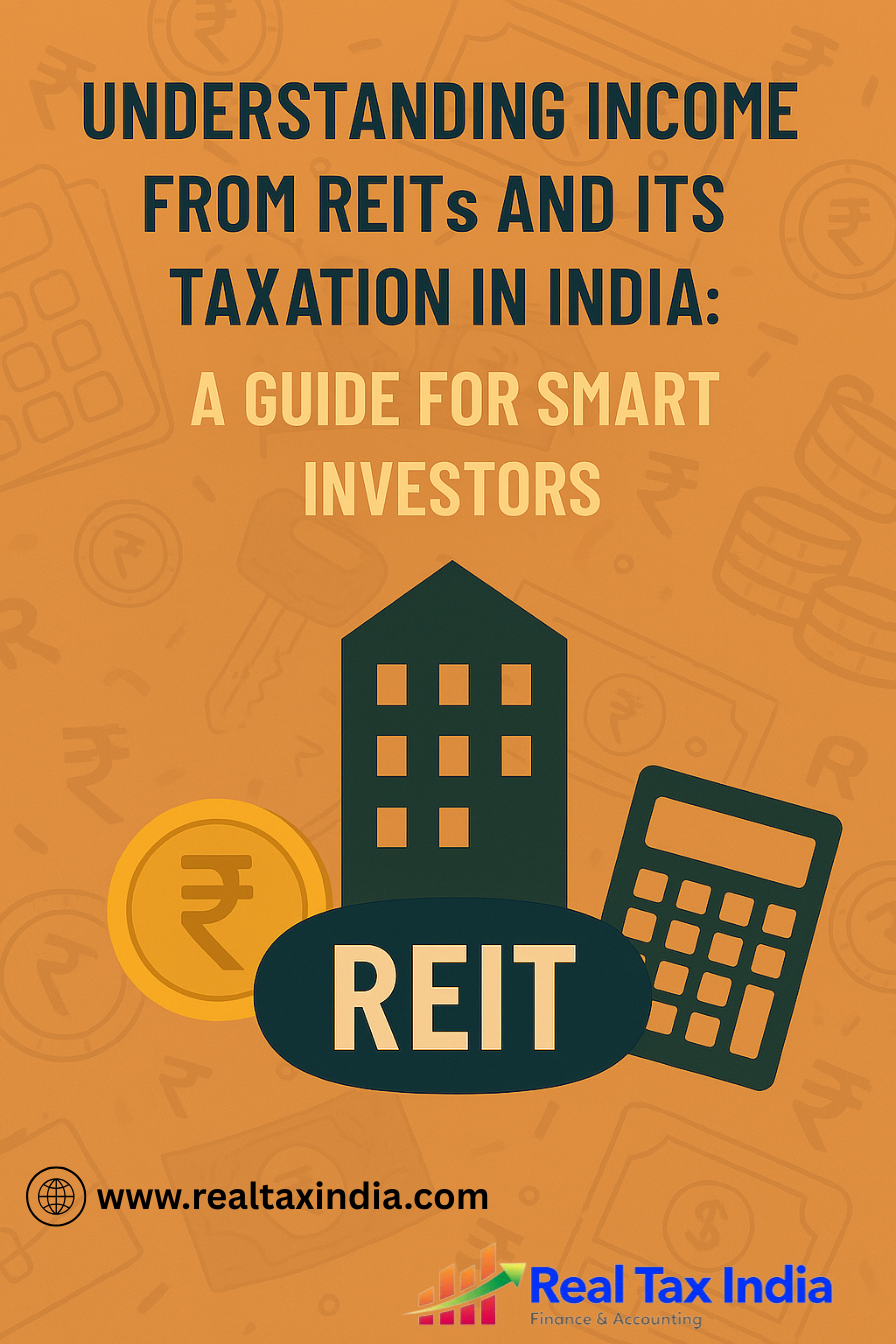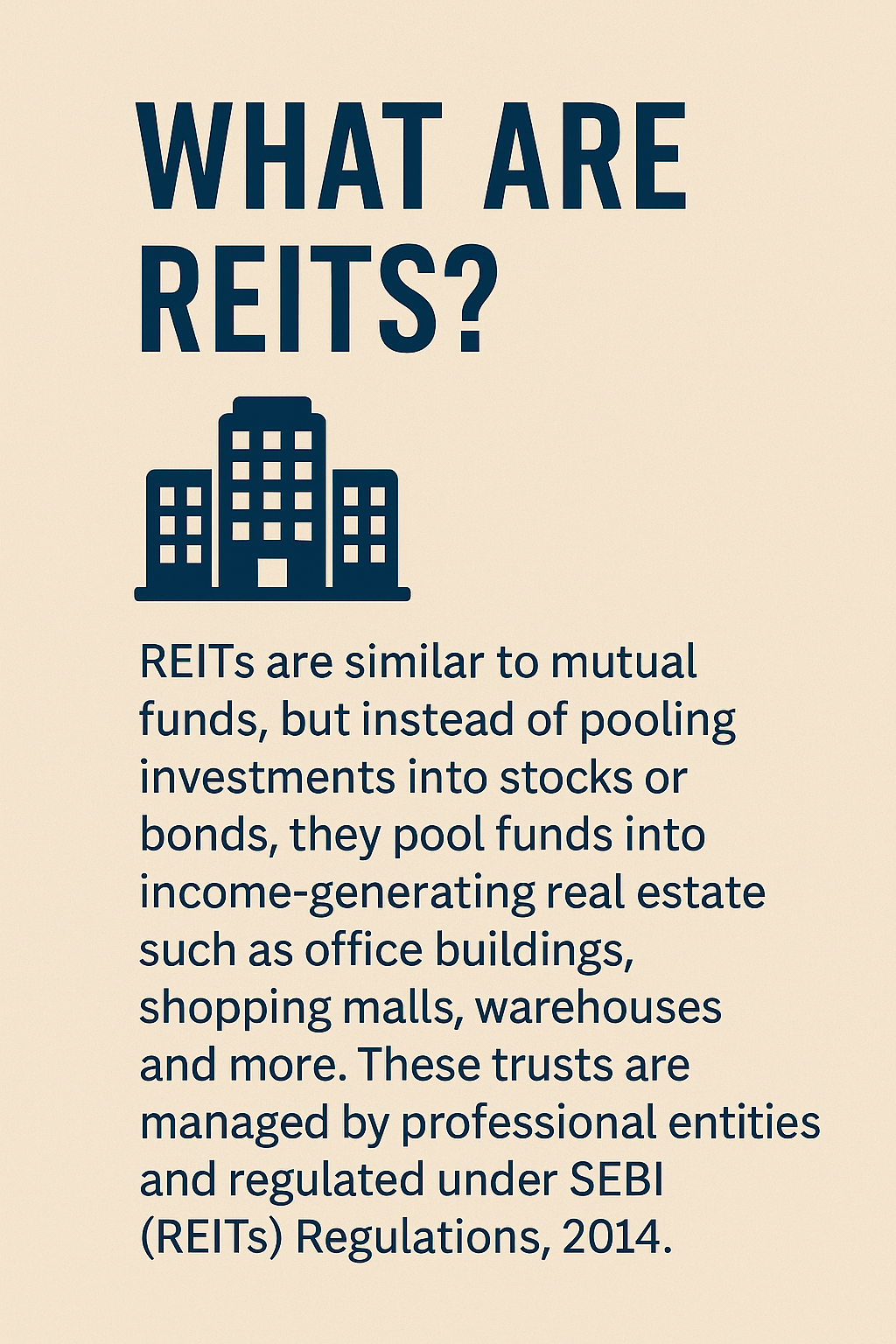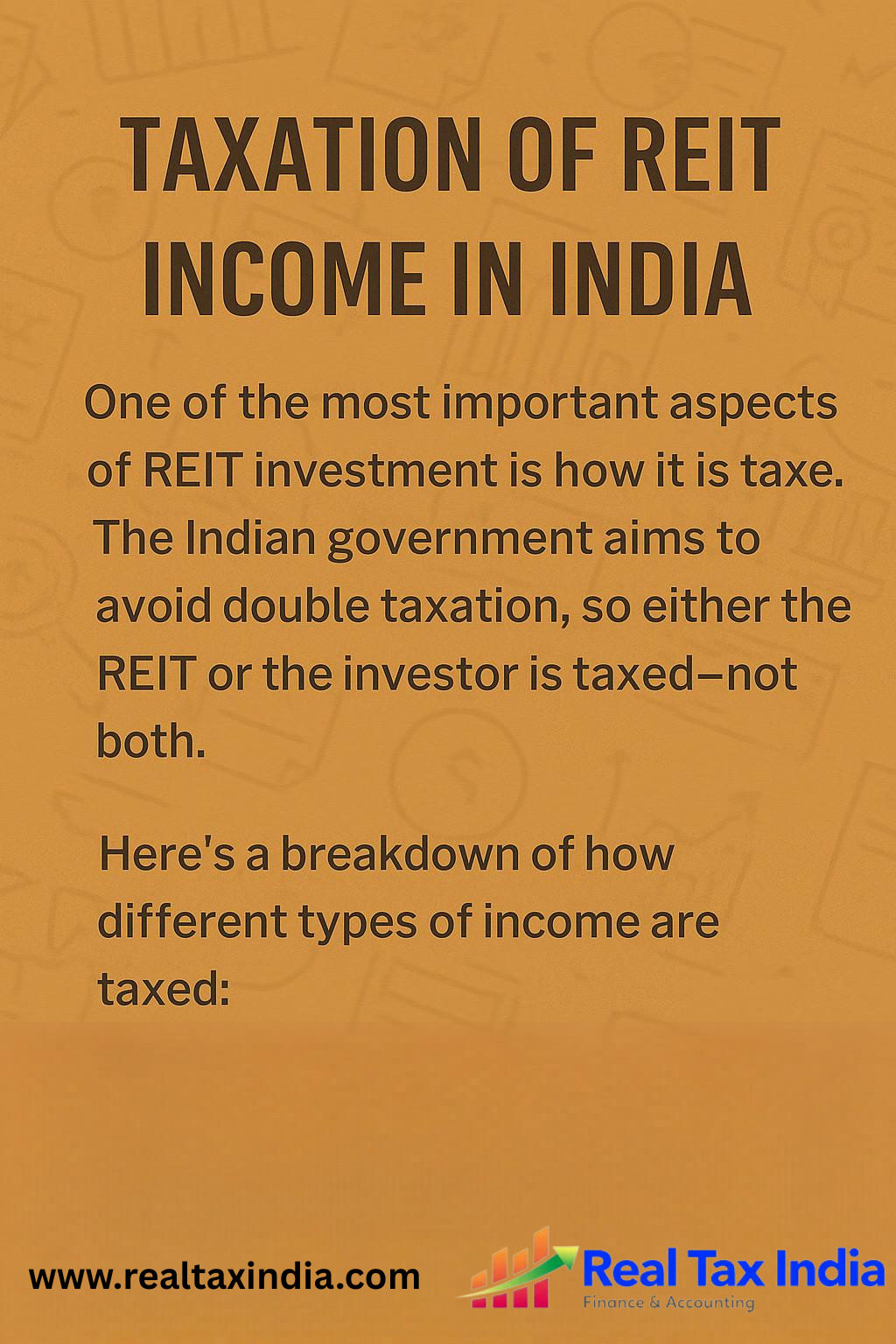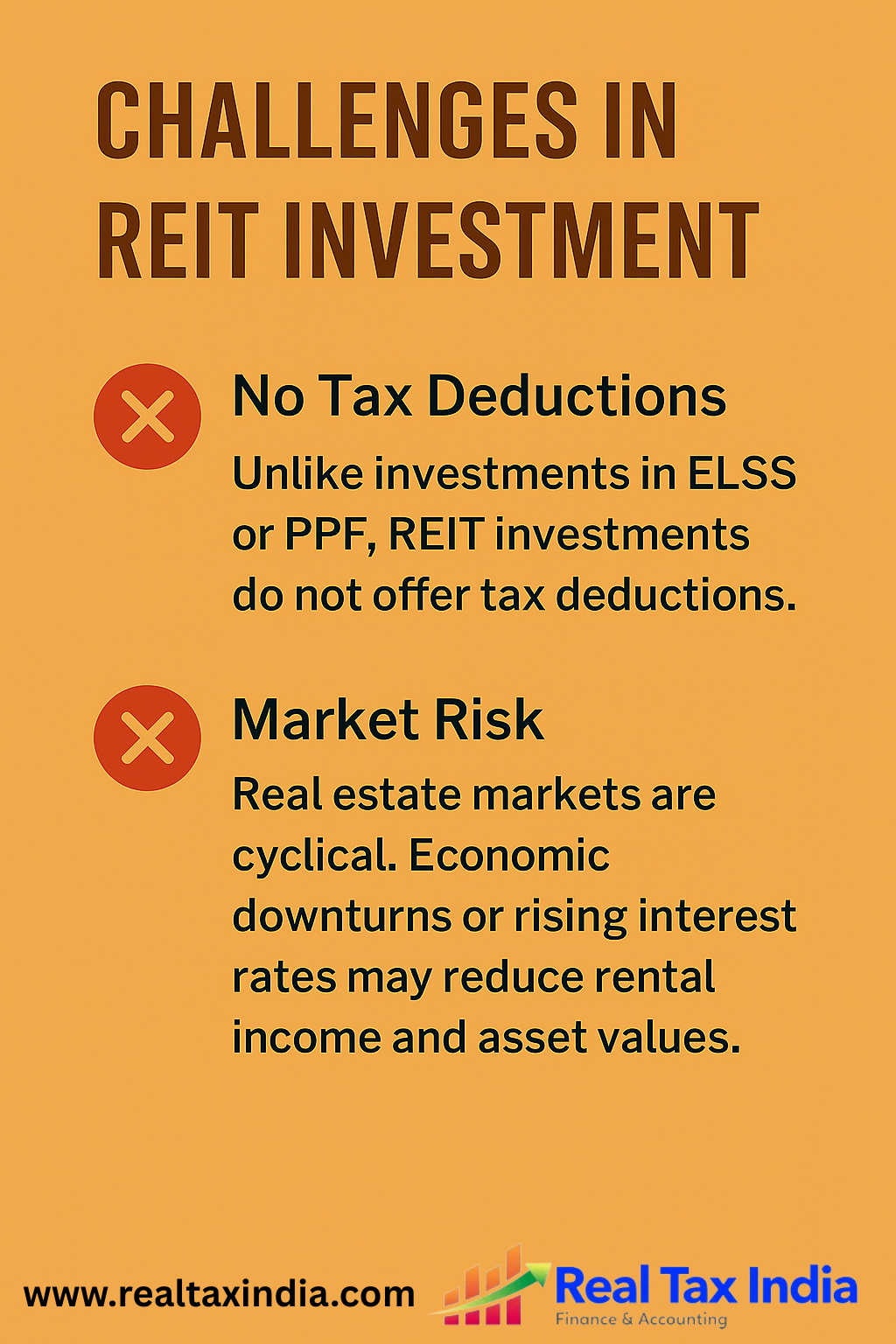Understanding Income from REITs and Its Taxation in India: A Guide for Smart Investors
Understanding Income from REITs and Its Taxation in India: A Guide for Smart Investors
By RealTaxIndia| Updated JUN 17, 2025

Real Estate Investment Trusts (REITs) have revolutionized the way individuals invest in commercial real estate in India. These investment vehicles allow individuals to own a piece of large-scale income-generating real estate projects without having to purchase or manage properties themselves. While REITs offer diversification and regular income, understanding their taxation is critical to optimizing your returns.
In this article, brought to you by Real Tax India — your trusted partner in taxation and business compliance — we will explore how income from REITs is taxed in India and what investors should keep in mind.
🔗 Facebook: Post
🔗 LinkedIn: Post
What Are REITs?
REITs are similar to mutual funds, but instead of pooling investments into stocks or bonds, they pool funds into income-generating real estate such as office buildings, shopping malls, warehouses, and more. These trusts are managed by professional entities and regulated under SEBI (REITs) Regulations, 2014.

Notable REITs in India include:
- Embassy Office Parks REIT
- Mindspace Business Parks REIT
- Brookfield India REIT
- Nexus Select Trust REIT
Investors can earn through dividends, interest, or capital gains — without ever owning or managing a physical property.
🔗 Facebook: Post
🔗 LinkedIn: Post
Structure: Special Purpose Vehicle (SPV)
Most Indian REITs operate through Special Purpose Vehicles (SPVs). An SPV is an Indian company in which:
- The REIT holds at least 50% of the equity share capital.
- At least 80% of SPV assets are directly held in properties.
- It does not engage in any business other than real estate and its incidental activities.
Who Can Set Up a REIT?
To qualify as a REIT under SEBI guidelines, the trust must meet several conditions:
- Trust-Based Structure: Must be established as a trust with a sponsor, trustee, and manager.
- SEBI Registration: Must be registered with SEBI and comply with regulatory requirements.
- Asset Allocation: At least 80% of assets should be in completed, rent-generating commercial real estate.
- No Cross-Holding: Cannot invest in other REITs.
- Mandatory Listing: Units must be listed on a recognized stock exchange.
- Income Distribution: Must distribute at least 90% of its net distributable income to unit holders.
- 🔗 Facebook: Post
- 🔗 LinkedIn: Post
Taxation of REIT Income in India

One of the most important aspects of REIT investment is how it is taxed. The Indian government aims to avoid double taxation, so either the REIT or the investor is taxed — not both. Here’s a breakdown of how different types of income are taxed:
1. Dividend Income
- Taxable if the SPV opts for the concessional tax regime under Section 115BAA.
- Exempt if the SPV does not opt for this concessional rate.
🔹 TDS:
- 10% TDS applies if the dividend exceeds ₹5,000 annually (₹10,000 from FY 2025–26).
- 🔗 Facebook: Post
- 🔗 LinkedIn: Post
2. Interest Income
🔹 TDS:
3. Capital Gains
- Short-Term Capital Gains (STCG) (held for <1 year): Taxed at 20%.
- Long-Term Capital Gains (LTCG) (held for >1 year): Taxed at 12.5% if gains exceed ₹1.25 lakh annually. No indexation benefits apply.
4. Rental Income
- Taxable as per the investor’s income slab.
🔹 TDS:
- 10% is deducted on rental income distributed by REITs.
Benefits of Investing in REITs
🔗 Facebook: Post
🔗 LinkedIn: Post
Challenges in REIT Investment

How Real Tax India Can Help
Understanding taxation on REITs can be complex. From dividend treatment to capital gains and interest income — each type requires careful planning. That’s where Real Tax India steps in.
With over a decade of experience in:
- Income tax return filing
- Investment advisory
- Capital gains planning
- Business registrations
We ensure you’re not leaving money on the table.
🔗 Facebook: Post
🔗 LinkedIn: Post
📲 Contact Real Tax India:
- 🌐 Website: www.realtaxindia.com
- 📞 Phone: +91–9899767300
- 📧 Email: info@realtaxindia.com
- 🔗 Facebook: Post
- 🔗 LinkedIn: Post
Our experts are here to guide you through every financial and compliance decision.
Final Thoughts
REITs are a game-changer in the Indian real estate investment space, offering an excellent blend of regular income and long-term capital appreciation. However, tax implications can significantly affect your net returns. Understanding the fine print — or consulting professionals like Real Tax India — can help you stay compliant while maximizing your earnings.
If you’re considering investing in REITs or already hold units, take a moment to review your tax strategy. Smart tax planning today leads to better returns tomorrow.
Comments
Post a Comment